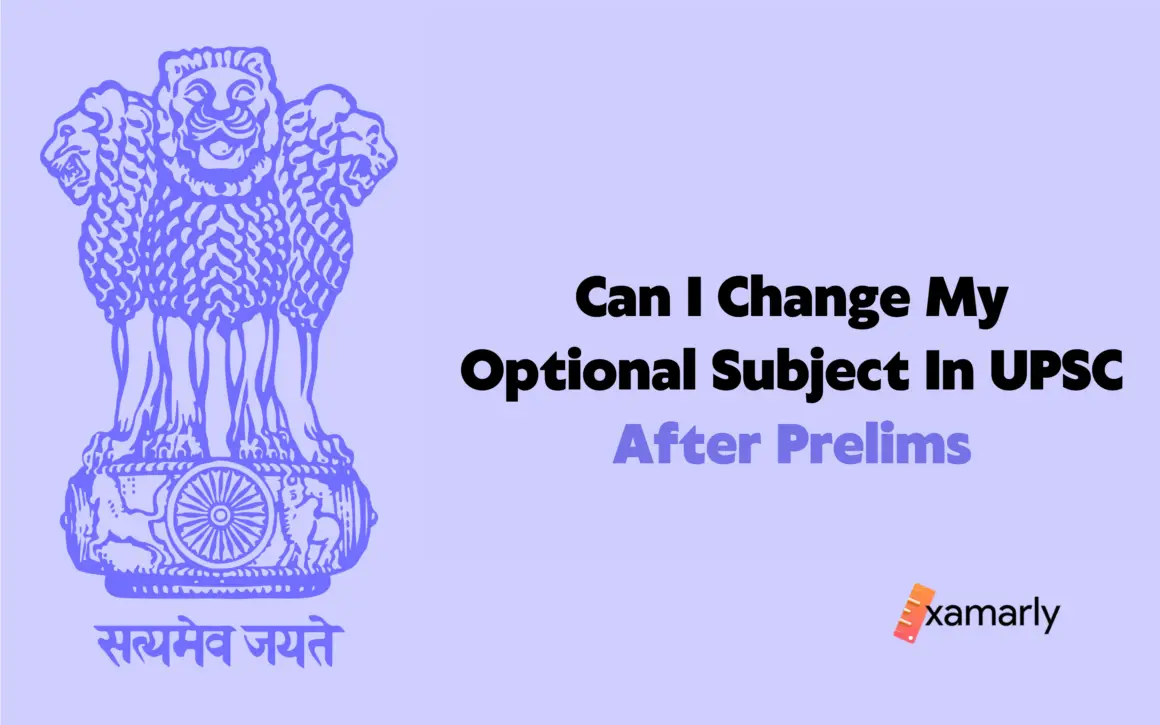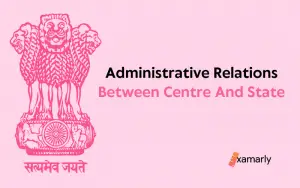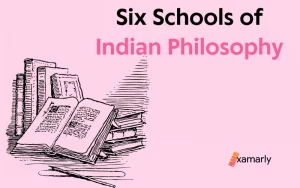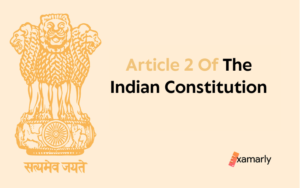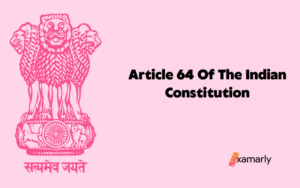For those aiming for the UPSC Civil Services Exam, I am sure most you aspirants have had this question in mind “Can I Change My Optional Subject In UPSC After Prelims?”. Well we got your back, read to know more. As we all know that choosing the IAS Mains Optional is a perennially difficult option. The number of optional subjects candidates must choose has been reduced to one under the most recent syllabus, yet candidates are still unsure of their selections.
- Can I Change My Optional Subject In UPSC After Prelims – A Big Question
- IAS Officer Shares Why Changing One's Optional Can Be Good
- How Crucial Is The Decision Of IAS Mains Optional?
- Should You Take An Optional Subject That Overlaps With General Studies Syllabus?
- The Most Popular Optional Subject
- The Optional Subject With The Highest Success Rate
- Optional Subjects Of The First-Rank Holders
- Conclusion
- FAQ's
Can I Change My Optional Subject In UPSC After Prelims – A Big Question
One cannot change their UPSC optional subject choice once made, although they can reapply for the same exam. The most recent form submitted with the amended selection will be considered the winning submission. Therefore, if someone wants to switch their optional topic after Prelims, they must fill out a new form with a suitable alternative and continue their preparation.
IAS Officer Shares Why Changing One’s Optional Can Be Good
- Varun, who graduated from the IIT-Bombay with a degree in computer science in 2013, decided to sit for the CSE while still in his third year of engineering. “I first became interested in taking the CSE while interning. I believed that there was a fairly broad range of work that could be done as a member of the administrative services. I began my preparational journey with that in mind,” he explains.
- Varun made it to the interview stage on his first humble attempt. But he felt that it was a fairly “directionless endeavor” made by him because he had selected Geography as his optional topic. When Varun made his initial effort in 2013–2014, there weren’t many internet tools available to candidates. “While Geography helped me in my interview that year, looking back, I should not have chosen Geography. I ought to have chosen math,” he admits.
- Varun changed his optional paper from Geography to Mathematics after making two efforts with it and feels that the switch was a game-changer. He claims, “I finished the entire Math syllabus in one and a half months.”
- The actual story makes it quite clear that revising one’s optional if one is uneasy about it is a smart idea, and aspirants shouldn’t be afraid to do that if they are apprehensive about their optional.
How Crucial Is The Decision Of IAS Mains Optional?
- Making a wise and informed choice on one’s UPSC optional topic is quite important.
- To perform well in the UPSC mains, you must choose an optional topic in which you feel confident. The degree of comfort is influenced by a variety of variables, including familiarity with the subject, accessibility to books and other study materials, faculty availability, peer discussion opportunities, recent trends in mark distribution, and the degree of difficulty based on the syllabus and sample test questions.
- In most cases, choosing the option that one has already studied during their graduation will prove to be a comfortable choice. A bad decision can ruin your score.
- For everyone else who doesn’t have an optional topic, they should find one that they can do in a timely manner without taking away from their ability to prepare for the GS.
Should You Take An Optional Subject That Overlaps With General Studies Syllabus?
- An excellent idea is to choose an optional that overlaps with General Studies in order to reduce the amount of time needed to study a subject that is not included in the GS syllabus.
- However, this scenario does not necessarily apply to all situations.
- Numerous top students have selected disciplines like zoology, medical science, and law, but none of these subjects connect with the GS curriculum the way that history or geography do. So, the knowledge in subjects chosen is very important.
- This makes it abundantly evident that a candidate should never choose an option for the lone purpose of GS overlap.
- Also, do check out the study material available for the particular subject. If there are limited resources available, it might not be a good choice whereas extensive resources can make it a more viable option to choose.
- Additionally, one shouldn’t choose an optional purely on the basis of coaching institutes’ recommendations. Although it is wise to put your trust in competent mentors, but by this age, you are mature enough to understand the financial motivations behind the promotion of every optional course, whether it be History, Geography, Sociology, Public Administration, Psychology, or anything else of the sort.
- This leads us to the conclusion that one should be aware of the scoring for each and every optional subject and its Exam Pattern.
- Some optional may not score highly in some years because of the scaling effects, but this is not a general pattern or hypothesis.
- Before making a decision, one must take into account three important factors. These three factors include time availability, effort level, and potential for top marks.
You Might Also Like – Best Optional Subject in UPSC to Score Well
The Most Popular Optional Subject
- Some of the optional subjects are particularly popular among candidates for the IAS test. In the last 5 to 6 years, geography has been the most popular elective.
- Nevertheless, the information can vary from year to year depending on how many applicants select for each optional for the IAS mains.
The Optional Subject With The Highest Success Rate
Looking at the records of the candidates, we saw that medical science regularly offered a high success rate for individuals who chose it. The applicants choosing Medical Science have had the greatest success rate among the subjects chosen by 100 or more candidates.
However, chances of success are highly dependent on time management. A conscious decision should be made while choosing one’s optional subjects.
Related To This Article – Success Rate Of Optionals In UPSC
Optional Subjects Of The First-Rank Holders
- One will be astounded by looking at the widespread representation from all of the optional papers provided by UPSC. The backgrounds of exam toppers alone reveal half the truth.
- When comparing results from past years, it can be noticed that the optional subjects selected by the top UPSC scorers varied greatly.
- Gaurav Agrawal, who received the top All India Rank in 2013, chose economics.
- Ira Singhal, the best student in 2014, decided to take geography as an elective.
- 2015’s top student Tina Dabi chose political science as an elective.
- Nandini KR won first place in 2016 with Kannada Literature as her elective subject.
- Kanishak Kataria, who chose mathematics, won the top spot in 2018.
- Thus, if you have enough knowledge of the subject and can respond to the questions in a way that satisfies the most recent UPSC norms, you will do well on all optional subjects.
Conclusion
Choosing an optional subject is a difficult choice to make for every UPSC aspirant. But in case, if you have chosen your optional and wish to change it after Prelims, you can definitely do that by registering again for the examination.
One should make an informed decision based on their own interests rather than being swayed by others or the overlap between their choice of optional and the General Studies paper.
FAQ’s
How many vacancies are released every year for UPSC aspirants?
Each year, a different number of openings are announced, according to the conducting body’s needs. 712 positions have been made available by the Commission for 2021.
Can a candidate fill out multiple online applications?
Multiple application forms should not be submitted. However, if a candidate registers more than once due to an error, the body will accept the most recent form submitted (i.e., one with the highest RID number).


